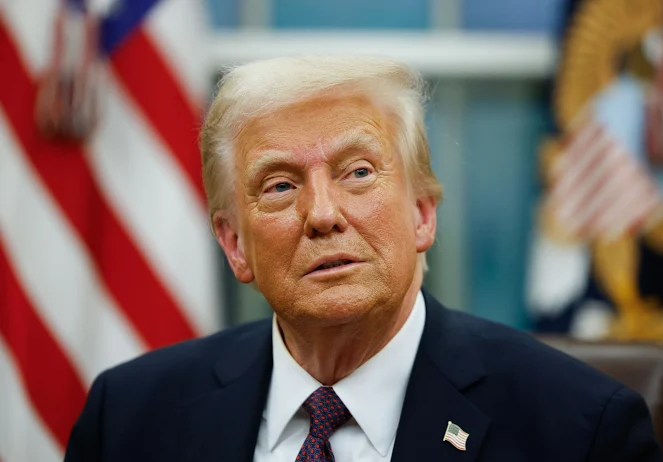By Jennifer McChriston | Investigative Correspondent
Yaoundé, April 2009 — A Diplomatic Ultimatum Buried by Time. In the spring of 2009, behind the closed doors of the U.S. Embassy in Yaoundé, a stark warning was delivered to the inner circle of President Paul Biya: Clean up the rampant corruption at the highest levels of government—or face consequences under U.S. law.
This threat, revealed in a confidential cable later published by WikiLeaks, marked a rare moment of high-level diplomatic pressure on the Biya regime. But as events would show, the warning fell on deaf ears—and the corruption only deepened, dragging Cameroon further into political decay and violent conflict.
A Quiet Yet Direct Message
The April 2009 cable, classified CONFIDENTIAL, described how the U.S. Ambassador met with senior Cameroonian officials to express growing frustration from Washington over entrenched corruption, lack of transparency, and impunity at the highest levels of government.
What made this cable remarkable was not just its tone, but its explicit invocation of U.S. anti-corruption enforcement laws. The ambassador reminded Biya’s government that:
U.S. officials had legal authority to deny visas and freeze assets of foreign officials implicated in “significant corruption”,
The Foreign Corrupt Practices Act (FCPA) could expose companies and individuals involved in bribery or illegal contract awards, and
Cameroon’s status as a recipient of aid and trade preferences under programs like AGOA (African Growth and Opportunity Act) was at risk if reforms were not implemented.
The cable concluded that Cameroon risked international isolation if it failed to address the widespread perception that the state had been hijacked by a small group of powerful elites.
The Reaction: Shrugged Off and Forgotten
While the cable reflects the seriousness of U.S. diplomatic posture at the time, there was no evidence of internal reform in Yaoundé. In fact:
Several high-profile ministers remained untouched despite being accused of embezzling millions of dollars,
Transparency measures were shelved or rendered meaningless through political appointments,
And Operation Épervier, Cameroon’s high-profile anti-corruption drive, continued tobe used more as a tool for political settling of scores than genuine institutional cleansing.
Observers say the Biya regime viewed the American threat as just another diplomatic gesture, and calculated—correctly—that strategic U.S. interests in the region would outweigh concerns about corruption.
Strategic Context: Counterterrorism vs. Good Governance
At the time of the cable, Cameroon was gaining relevance as a counterterrorism partner in Central Africa. The United States was expanding its surveillance operations against Boko Haram and other extremist threats in the Lake Chad basin. Cameroon’s geographic position and relative stability made it an indispensable military ally, despite its governance challenges.
“Washington had a choice to make,” said Dr. Henry Wilcox, a former senior analyst at the State Department’s Africa Bureau. “And it chose security over accountability.”
From Corruption to Conflict: The Price of Inaction
In hindsight, the April 2009 cable reads less like a warning and more like a missed opportunity. The same elite corruption that the U.S. flagged:
Deepened inequalities between Francophone and Anglophone regions,
Enriched politically connected generals, some of whom now lead military operations in the Anglophone conflict,
And weakened institutions to the point where civil unrest gave way to full-blown separatist war.
“There is a direct line between what the Americans warned about in 2009 and what exploded in 2016,” says Cameroonian political historian Dr. Martha Eposi. “Biya’s refusal to act wasn’t ignorance—it was a calculated gamble.”
Diplomatic Lessons Unlearned
Today, the United States remains diplomatically engaged in Cameroon. However, the same individuals and systems flagged in the 2009 cable continue to operate with impunity. Recent statements from Washington call for dialogue and reform, but observers note that the moment for real leverage may have long passed.
“No regime reforms under vague pressure,” said a former American diplomat familiar with Cameroon. “That 2009 message needed teeth. It never got them.”
Conclusion: A Threat Without Consequences
The April 2009 cable represents a crucial piece of diplomatic history. It shows that the United States recognized early on that Cameroon’s biggest threat was not terrorism—but its own rot from within.
But in the absence of concrete follow-through, the warning became another memo in the archive of missed opportunities—buried until WikiLeaks unearthed it for the world to see.
And as Cameroon burns through crisis after crisis, the silence that followed that cable may speak louder than the threat it once carried.
Jennifer McChriston is an investigative journalist focusing on U.S. foreign policy, African governance, and diplomatic transparency. Her work appears in The Independentist and other global platforms.

